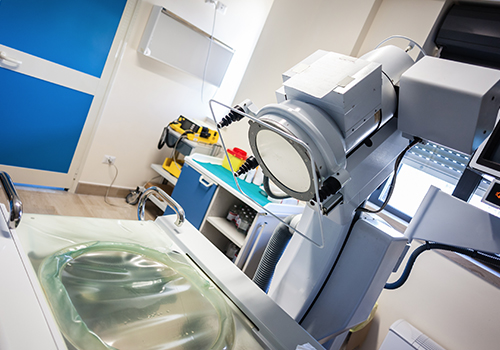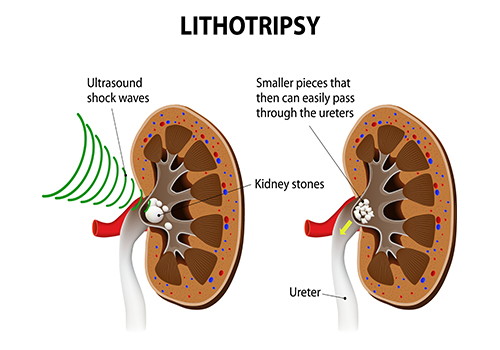ESWL is a non-invasive surgical procedure which uses sound waves to fragment kidney stones.
ESWL uses shockwave energy to fragment a stone into smaller pieces so that the smaller pieces can be passed more easily. This procedure is typically used for asymptomatic stones within the kidneys or stones in the upper portion of the ureter. The procedure is done in the hospital or surgery center and usually takes about 45 minutes. Patients are given IV sedation or anesthesia. During the procedure, the patient rests on a lithotripsy table and is positioned so that the stone can be identified with the use of X-ray and/or ultrasound imaging.



